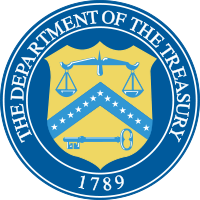
On July 20, the U.S. Treasury blacklisted three senior members of al Qaeda living in Iran for providing financial and logistics support to the terrorist group. “Today’s action sanctions senior al-Qaida operatives responsible for moving money and weapons across the Middle East,” said Adam J. Szubin, Acting Under Secretary for Terrorism and Financial Intelligence.
Tehran, however, denied Washington’s claims on July 26. Foreign Ministry spokesman Bahram Ghasemi said that Iran does not have any information regarding their presence on Iranian soil, according to state media. He called on the United States to share its information to “better combat terrorism.”
Shiite Iran and Sunni al Qaeda are not natural allies. Their relationship during the past two decades has been complex and rocky, as shown in documents seized from Osama bin Laden’s compound in Pakistan. In 2012, the U.S. Army’s Combating Terrorism Center at West Point concluded that the relationship “is not one of alliance, but of indirect and unpleasant negotiations over the release of detained jihadis and their families.” After the 2001 U.S.-led coalition intervention in Afghanistan, hundreds of al Qaeda fighters fled west to Iran. Iran detained many of them, but exact details about their confinement are unknown. Iran claimed to have extradited more than 500.
The U.S. government has sanctioned other al Qaeda operatives based in Iran before. In 2011, the Treasury designated six members of a network operating under a secret deal with the Tehran. Al Qaeda was allowed to funnel funds and operatives through Iranian territory. In 2012, the Treasury further exposed the network and blacklisted another individual. The following is the Treasury press release on the latest designation.
Treasury Designates Three Senior Al-Qaida Members
Today, the U.S. Department of the Treasury took action to disrupt the operations, fundraising, and support networks that help al-Qaida move money and operatives from South Asia and across the Middle East by imposing sanctions on three al-Qaida senior members located in Iran. Specifically, Treasury designated Faisal Jassim Mohammed Al-Amri Al-Khalidi (Al-Khalidi), Yisra Muhammad Ibrahim Bayumi (Bayumi), and Abu Bakr Muhammad Muhammad Ghumayn (Ghumayn) as Specially Designated Global Terrorists pursuant to Executive Order (E.O.) 13224 for acting for or on behalf of al-Qaida. Al-Qaida is listed in the annex to E.O. 13224, which targets terrorists and those providing support to terrorists or acts of terrorism.
As a result of this designation, all property subject to U.S. jurisdiction in which these individuals have any interest is blocked, and U.S. persons are generally prohibited from engaging in any transactions with them.
“Today’s action sanctions senior al-Qaida operatives responsible for moving money and weapons across the Middle East,” said Adam J. Szubin, Acting Under Secretary for Terrorism and Financial Intelligence. “Treasury remains committed to targeting al-Qaida’s terrorist activity and denying al-Qaida and its critical support networks access to the international financial system.”
Faisal Jassim Mohammed Al-Amri Al-Khalidi
Al Khalidi is designated for acting for or on behalf of al-Qaida. Al-Khalidi is a senior al-Qaida official who was an emir of an al-Qaida brigade and part of a new generation of al-Qaida operatives. In May 2015, as al-Qaida Military Commission Chief, Al-Khalidi participated in an annual al-Qaida Council meeting with other al-Qaida commanders to discuss weapons acquisition.
In 2014, Al-Khalidi was an al-Qaida battalion commander and received funding from al-Qaida. As of 2011, Al-Khalidi was responsible for liaising between al-Qaida associates and al-Qaida Central Shura members and leaders within the U.S.-designated terrorist group Tehrik-e Taliban Pakistan.
Yisra Muhammad Ibrahim Bayumi
Treasury designated Bayumi for acting for or on behalf of al-Qaida. Bayumi is a veteran al-Qaida member who has been located in Iran since 2014 and a member of al-Qaida since at least 2006.
As of mid-2015, Bayumi was reportedly involved in freeing al-Qaida members in Iran. As of early 2015, he served as a mediator with Iranian authorities. Prior to that, Bayumi was involved in assisting al-Qaida members located in Iran. In 2014, al-Qaida members used Bayumi to gather funds. He has served in several important roles in the group, including, as recently as 2015, securing funds from Syria for al-Qaida members and facilitating al-Qaida funds transfers.
Abu Bakr Muhammad Muhammad Ghumayn
Ghumayn is designated for acting for or on behalf of al-Qaida. Ghumayn is a senior al-Qaida leader who has served in several financial, communications, and logistical roles for the group. As of 2015, Ghumayn assumed control of the financing and organization of al-Qaida members located in Iran. Before he traveled from Waziristan, Pakistan, to Iran, Ghumayn served as a conduit to senior al-Qaida leadership as of late 2014. As of 2014, Ghumayn served within al-Qaida in an intelligence and security capacity.
